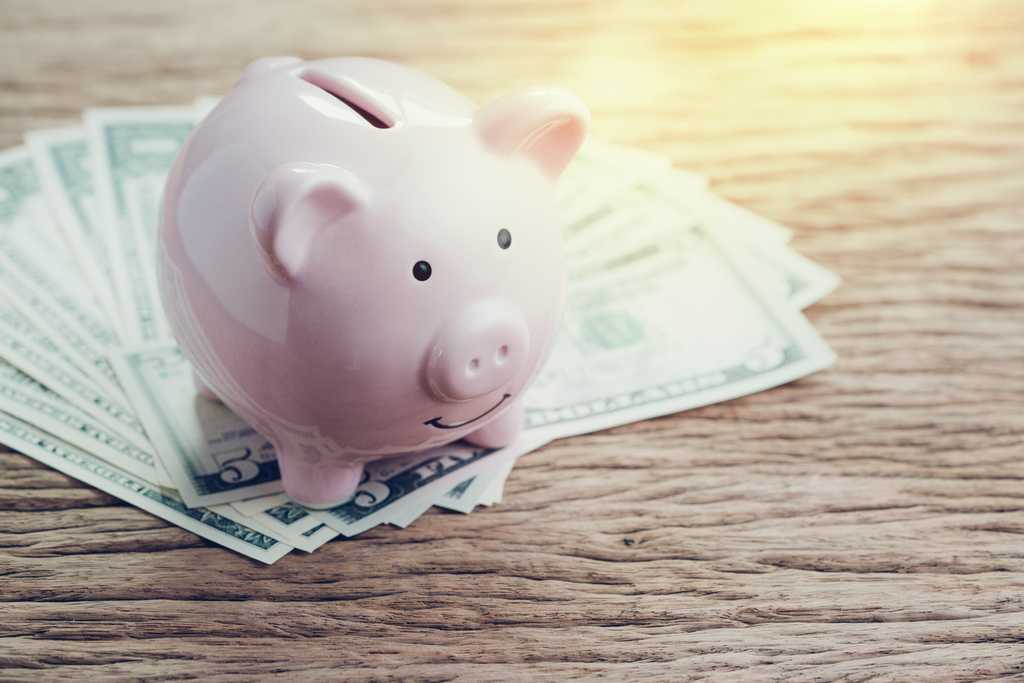While checking and savings accounts are important, they’re not the best place for all your savings. Not enough in them and you can’t pay your bills or save for large, short-term expenses. Too much and you miss out on the higher returns in real estate and the stock market.
So how much cash should you keep in your checking account? The number is different for everyone but a good rule of thumb is to have one to two months worth of expenses in your checking account to pay monthly bills, and save money for near-term expenses, like a vacation or a large purchase in a higher-yielding savings account.
How much cash should you keep in a checking account versus a savings account?
The amount of cash you should keep in your checking and savings accounts will depend on your monthly expenses. To determine your monthly expenses, look at your last three months of transaction and take an average so you know approximately what you spend in a month.
You may also want to do a calculation without discretionary expenses to see your bare bones monthly average as well. Next you’ll decide how many months of expenses you want to keep in each. To determine what’s right for you let's look at the purpose of each account and why you should keep anything in them at all.
Your checking account is the bank account you can access with a debit card and write checks from making it your go-to, daily transaction account. You keep money in your checking account to pay your bills or withdraw cash when you need it.
A savings account is ideally where you save money. This is money that you want to have access to in the next year or less but aren’t ready to use yet. This includes your emergency fund, which you’ll need immediately for expenses if you’re laid off, or a vacation fund.
If the point of a checking account is to pay monthly bills then it’s good to have 1-2 months of expenses in your account. The amount in your savings account will depend on what you’re saving for. At minimum, your emergency fund should have three to six months of bare bones expenses. If you’re saving for any short-term expenses you should have a separate account with additional savings for those.
Many checking accounts from traditional banks have minimum deposit requirements, which means you have to keep an additional $1,500 or so in your checking account in addition to two months of expenses. Even if you don't overdraft the account, you can still incur a penalty fee if your balance drops below the minimum requirement. Banking apps like Chime® that provide checking services and don't have physical locations also often forego minimum deposit requirements.
How much cash does the average person have in a deposit account?
The amount the average person keeps in the bank varies widely by income bracket. According to The Federal Reserve, in 2019 the median value of transaction accounts was about $5,300, up 11% since 2016.
To put that number in perspective, the top 10% of families had an average of $70,000 or more in their checking and savings accounts while the lowest 20% kept just $810. Families in the middle had anywhere from $4,300 to $10,000.
Is it better to keep money in checking or savings?
Checking accounts are easy to access but tend to pay little to nothing in interest. The current average interest rate for checking accounts in the United States is 0.03%. The average interest rate for savings accounts isn’t much better at .04% but you can find high-yield savings accounts that pay up to 1% or more.
So while savings accounts may seem like the better place to keep your money, remember that the S&P 500 has returned 10% since its inception making the stock market a far better place for long term savings. But if you need to take cash out today, putting everything in your savings account or investing it is probably not the best route, especially in a volatile market.
The ultimate goal is to keep the right amount in both your checking and savings accounts and once you’ve hit those numbers, save excess in investment accounts.
Is it safe to keep money in a checking account?
When the Great Depression hit many people lost everything they had in banks. It’s what led many grandparents to hoard money in mattresses and sock drawers. In present day we don’t have to worry about losing money in checking and savings accounts because of FDIC and NCUA insurance,
The Federal Deposit Insurance Corporation (FDIC) and National Credit Union Administration (NCUA) are independent agencies created by Congress to provide deposit insurance at U.S. banks and credit unions respectively.
What this means is that the money in your checking and savings accounts is guaranteed to you no matter what the stock market or economy are doing. And you can withdraw your money in full at any time with just a few days notice.
How much is too much cash in savings?
Insurance typically covers up to $250,000 per person per institution. Because of insurance limits, you should never keep more than $250,000 in a checking or savings account. Many experts will recommend you keep far less. You should have at least one month of expenses as a buffer in your checking account at all times and no more than two.
You can keep much more in your savings account. While the general recommendation is three to six months of bare bones expenses, you can safely save an emergency fund of up to 12 months. You’ll also want to add to that any large expenses you’re saving for like home repairs, car replacement, or a vacation.
Any savings beyond that is best invested. While investments lack FDIC insurance they give you an edge that checking and savings accounts don't: to outearn inflation. And if you can invest within a tax-advantaged retirement account like a 401(k) or IRA you can save money on taxes which, depending on your income bracket, can give you back 22% to 37% of your income.
Whatever you do, keep focusing on saving. You can always pick the right accounts later but you can rarely get money back that you’ve already spent.
Chime is a financial technology company, not a bank. Banking services provided by The Bancorp Bank, N.A. or Stride Bank, N.A., Members FDIC.

